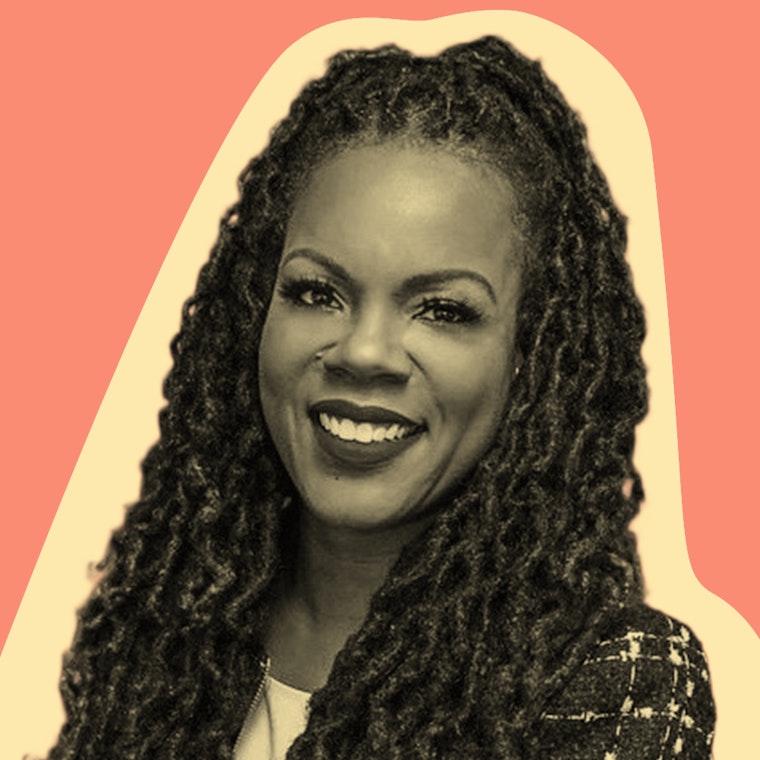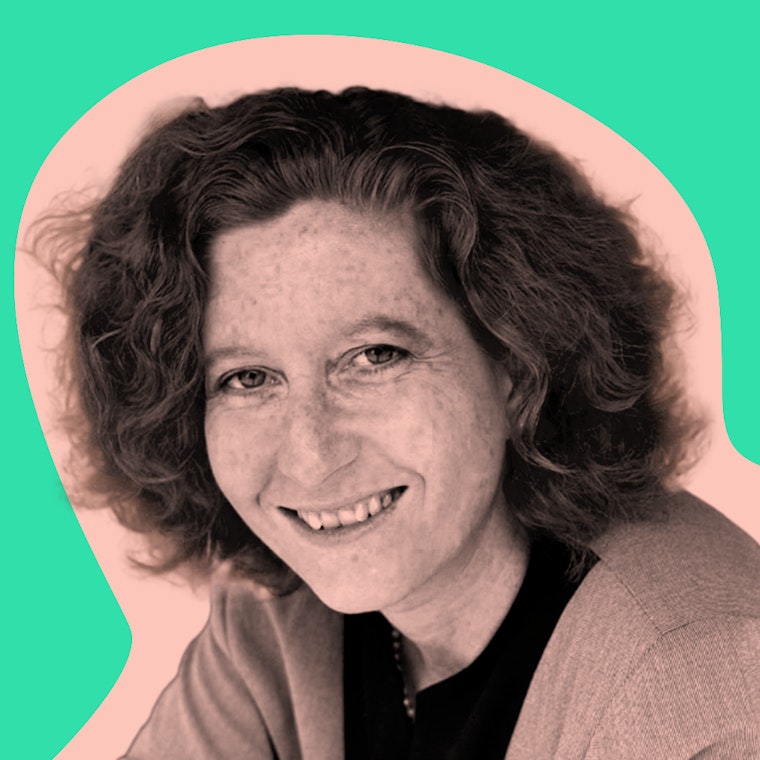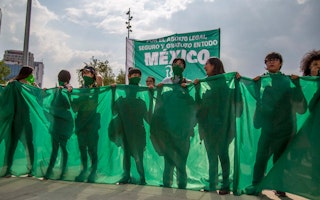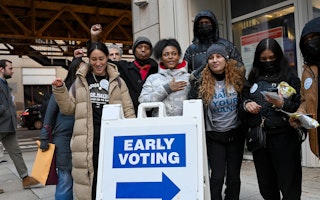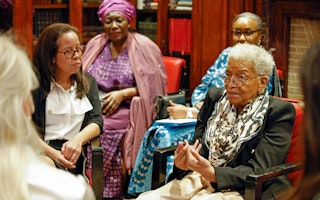Light in the Darkness: The Feminist Leaders Revolutionizing Democracy
By Kavita Nandini Ramdas
Even before the COVID-19 pandemic, women and girls across the globe shouldered significantly more of the care responsibilities within the home. Now we know that the pandemic and economic downturn have pushed millions of people into extreme poverty, but women and girls are experiencing it at unprecedented levels. Women are bearing the burden of unpaid care work, and witnessing strongmen authoritarians empower themselves at the expense of their rights.
The challenges on women’s economic security and human rights are immense, but only as long as societies refuse to recognize the problem and implement solutions. Over the past year, from the women-led farmer protests in India to the South African momentum to end gender-based violence, feminist movements are pushing societies to transform. Argentina listened to their powerful feminist movement and legalized abortion. Chile wrote a new constitution that has been applauded as a feminist victory. Moreover, around the world, domestic workers are building labor power to ensure safe and dignified essential work.
To celebrate Women’s Herstory Month, our Women’s Rights Program is sharing stories of women who bring us hope and motivation. These feminist leaders are reclaiming space and helping to grow open societies through their vibrant and influential feminist movements.
Every day, they are working to ensure full and equal participation of women and girls in all aspects of public life, which all starts with women and girls being able to exercise our voices, agency, and power. Amidst so many challenges, they shine a light that another world—a feminist world—is possible.


Shereen Essof, executive director, JASS
“I remember being in the United Kingdom as a six-year-old surrounded by posters celebrating Pan-Africanism and the liberation movement against colonisation in Zimbabwe, where I grew up. The images I saw were of men. Years later, after Zimbabwe’s independence, I realized that the ‘Shemurenga’— the struggle for and liberation of women in Zimbabwe had largely been written out of history. This solidified my belief that Black and Brown women most impacted by oppressive systems like capitalism, racism, sexism, are on the frontlines of change. Their contributions in the day-to-day form the incubator for both expressions of protest against a system that chooses not to acknowledge them but also give rise to imagined, new realities. That’s part of the sensibility I bring to my work with JASS, a global feminist movement support organization that seeks to strengthen the voice, visibility, and collective organizing power of women. It is a privilege to walk with women in their communities in the struggle for liberated, equitable, life giving and more just futures.”
Ruth Khakame, National Domestic Workers Council of Kudheiha
“I had a difficult childhood and I think that the experience has left me with an enduring soft spot for those who’ve had to deal with challenges and traumas that weren’t their fault. I met a lot of people like that when I worked in domestic care—and when I eventually became someone in a position of leadership within the industry, I wanted to do everything I could to make sure the women and girls doing this labor were being fairly treated and paid for their hard work. As the head of the National Domestic Workers Council of Kudheiha, a trade union that advocates for Kenyan workers, I’ve tried to make sure these people get the recognition that is their right. After all, it will end up being to everyone’s benefit when the essential work done by women and girls all over Kenya and the world is truly appreciated.”

Dr. Jiweon Jun, Senior Research Fellow at the Center for Transnational Migration and Social Inclusion (CTMS), Seoul National University
“I must confess that I was less sensitive about gender justice until I became a mother. I’d encountered plenty of gender injustice while working as a journalist in Korea, of course; and when I was studying for my degree, I came across studies on the gendered division of labor in daily life. But it was only after my own intense experience that I fully came to see that both Korean men and women are not free to make choices in terms of who provides care; it was linked to a much deeper level of gender injustice that suffused Korean society. I see my work with the Center for Transnational Migration and Social Inclusion as, in part, providing an empirical basis for discussing possible policy solutions to this broad injustice. And while we are an academic institution based at a university, we work closely with field activists, paid care workers, unpaid family caregivers, corporations, and others to bring about social change.”
Dr. C. Nicole Mason, president and chief executive officer of the Institute for Women’s Policy Research (IWPR)
“I still remember when I became inspired to do this work. I was a student at Howard University and was learning about the structural causes of poverty, as well as the important role programs like Head Start play in helping people live with dignity and hope. I was rocked to the core by the experience. I had benefitted from that program and others like it when I was a child; I had been poor and didn’t even know it. After that moment, and for the first time, I had the language and theories to make sense of not only my childhood experiences, but of the world. I went on to become the founder of Howard University’s first feminist organization, and I’ve continued that work all the way through to what I’m doing today with the Institute for Women’s Policy Research. We deeply believe that the systems and structures that maintain discrimination and privilege are interconnected, and that none can be dismantled in isolation.”

Giselle Carino, CEO for International Planned Parenthood Federation—Western Hemisphere (IPPFWHR) and Natalia Gherardi, executive director, Equipo Latinoamericano de Justicia y Género (ELA)
“In many ways, Argentina is a country of contradictions. We have good regulatory framework and several institutions with the purpose of protecting human rights and promoting gender equality, yet they often fail to affect the lived experiences of real women and girls. Growing up, abortion was not often talked about—let alone seen as a right. Working within the feminist cooperation and advocacy movements has allowed us to address these injustices head-on. During the last five years, feminist collective mobilization has grown enormously in Argentina. A combination of activists, journalists, and feminists in the academy and in politics has created a unique movement and moment. It’s allowed us to continue the work that our foremothers began in the 1970s, to use the democracy that was reclaimed in the 1980s to truly liberate and empower all Argentinians—including women and girls. The massive Green Wave mobilizations that started in 2015 under the motto Ni Una Menos (Not One Woman Less) demanded a halt on femicides, and led to many transformations that we have achieved since then, including legalization of abortion at the end of 2020. While we’re enormously proud of the work that was done to recognize care work and women’s reproductive rights in legislation, we know it’s just the beginning for Argentina.”

Krystyna Kacpura, executive director, Federation for Women and Family Planning
“After I started my work with the Federation for Women and Family Planning in 1992, I quickly realized that I would never be able to stop doing this work. There are too many women and girls in Poland who, every day, are deprived of their reproductive rights. They need someone to fight for them, and I’ve been incredibly proud to do that work—even if we’re a long way away from having a government that recognizes our right to control our own bodies. We’re going to keep fighting. And we know that the greatest weapon we have against those who would restrict the rights of women and girls is solidarity. After so many years of being inactive, Polish women and girls have become politically awakened, and I am certain that we will never give up pushing for what we deserve.”
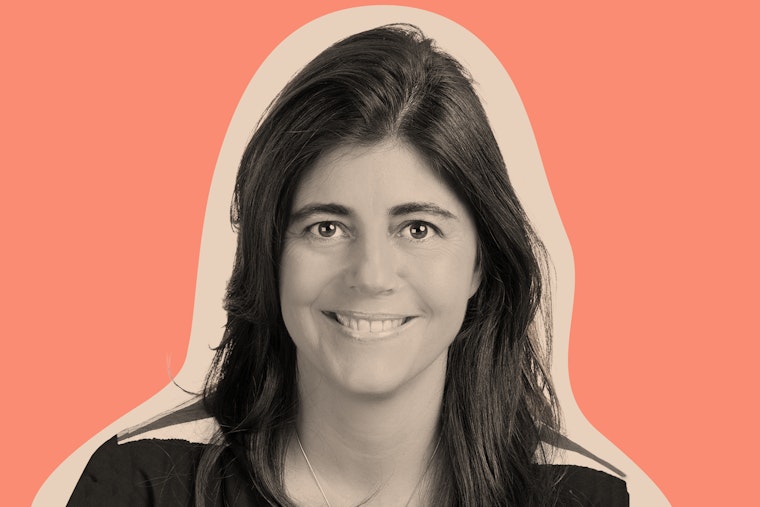

Magdalena Sepúlveda Carmona, executive director, The Global Initiative for Economic, Social and Cultural Rights
“I grew up in Chile during the military regime of Pinochet. By the time I was an adolescent, the government-backed disappearances, torture, and censorship had decreased, but the country was suffering under extreme inequality. I began working on issues of poverty from a human rights perspective beginning in law school, and eventually I had the honor to be the first United Nations Special Rapporteur on Extreme Poverty and Human Rights. When I was growing up, being called a feminist was an insult, but I was proud to call myself feminist, then and now. I’m working with the Global Initiative for Economic, Social and Cultural Rights to expose the way that neoliberal economics had an enormous impact on people’s lives. We give visibility to the fact that the formal economy depends on the invisible, unrecognized, and unpaid care and domestic work of women and girls. This system has a significant impact on women’s enjoyment of rights. It constrains women’s progress in education, entry into the paid labor market, and impacts their health—all resulting in women being poor in old age.”
Hibaaq Osman, founder, Karama
“From a young age, we are told that women are the product of Adam’s crooked rib—that’s the narrative, we are an afterthought, and we are treated as such. I felt the effects growing up in the Horn of Africa, and saw how they played out in our lives; in Somalia, that meant conflict and instability. When countries fall apart, women are the first casualties. But the fact is, you cannot marginalize half of the population and expect the overall society to prosper. From that point on, it became clear to me that it didn’t have to be like this—that this was an injustice that, however old, had been constructed. And just as it had been put up, we could bring it back down. That is why I started Karama—a network with partners in 14 countries in the Middle East and Africa that mobilizes women’s influence and participation through political, legal, and civil activism to address women’s advancement, security, protection, and participation. Every day I do this work, it reinforces the enduring truth that investing in women and girls is the key to meaningful change.”
Lynn Paltrow, executive director, National Advocates for Pregnant Women
“My vision for National Advocates for Pregnant Women is not only informed by my feminism, but also by my being Jewish and a lesbian, and by a commitment to fighting for racial justice. National Advocates for Pregnant Women combines legal work with organizing and public education to fight for the constitutional and human rights of all people who have the capacity for pregnancy. We challenge the criminalization of pregnancy and abortion and represent and defend people who have been particularly stigmatized and targeted—including pregnant drug-using women. And we work to build the base of support for reproductive justice by working across movements including those for reproductive rights, drug policy reform, and racial justice. Our work is one piece of the puzzle, and we partner with and support state-based, local grassroots activists who are doing the work on the ground in their communities. I joke sometimes that I seem to have a limitless capacity for outrage; and being able to channel that and use my expertise to work towards a world that respects the autonomy and agency of all people, and specifically pregnant women. That is something I am enormously proud of.”
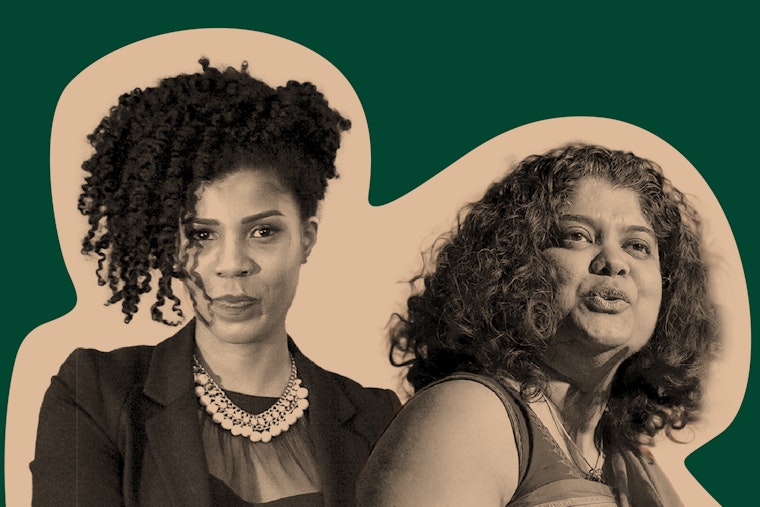
Anasuya Sengupta and Adele Vrana, co-founders, Whose Knowledge?
Adele and Anasuya’s inspirations for gender justice are their mothers: Adele’s mother “dreamed about getting an education and becoming a nurse. Her destiny as a black, poor woman in Brazil was to be a domestic worker like her mother had been for all her life. Her unshakable belief on her potential, talents, and capacity is the place I often go to to draw strength and energy to persevere in my own path of resistance and liberation.” For Anasuya, she “grew up in India with grandparents who believed in my younger brother but not in me, and a mother who believed unconditionally in both of us. I found that confusing until I started to learn about patriarchy—and the role women can play in dismantling it. As a writer, my mother used her creativity to help me reimagine the world.” For both of them, “the organization we cofounded, Whose Knowledge?, is a feminist collective of Black and brown women from around the world. We know what it feels like to be on the margins of the world, and we believe that a crisis of ‘unknowing’—of not knowing each other as fully as we could or should—is the fundamental challenge of our time. Justice and liberation is for all of us: when we dismantle the different structures of oppression we encounter today, each of us is free to imagine ourselves without bounds—and together to create a world in which we can collectively share in that boundlessness.”

Until September 2021, Kavita N. Ramdas was director of the Open Society Women’s Rights Program.
